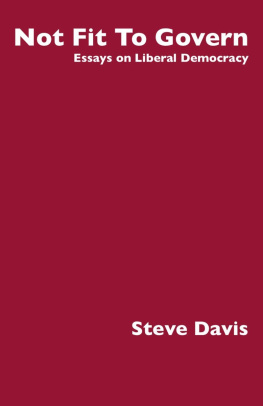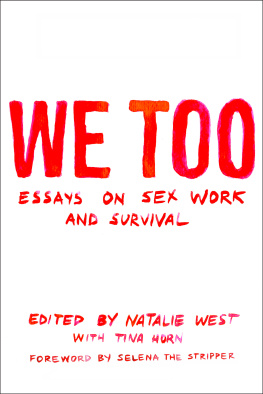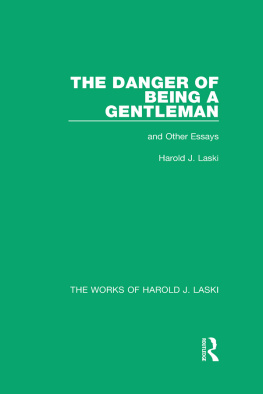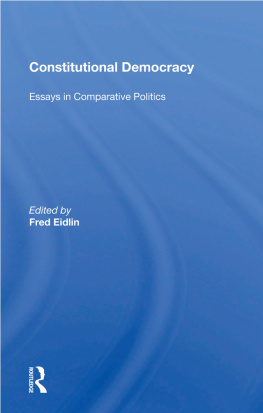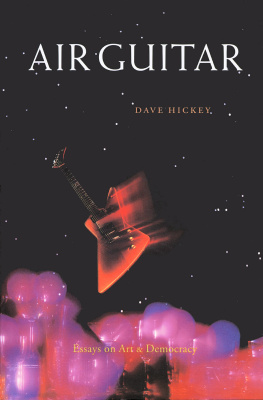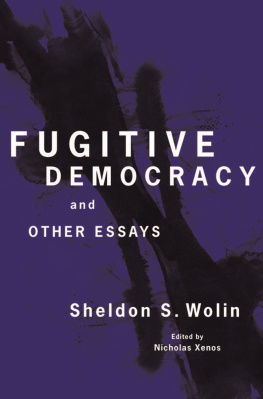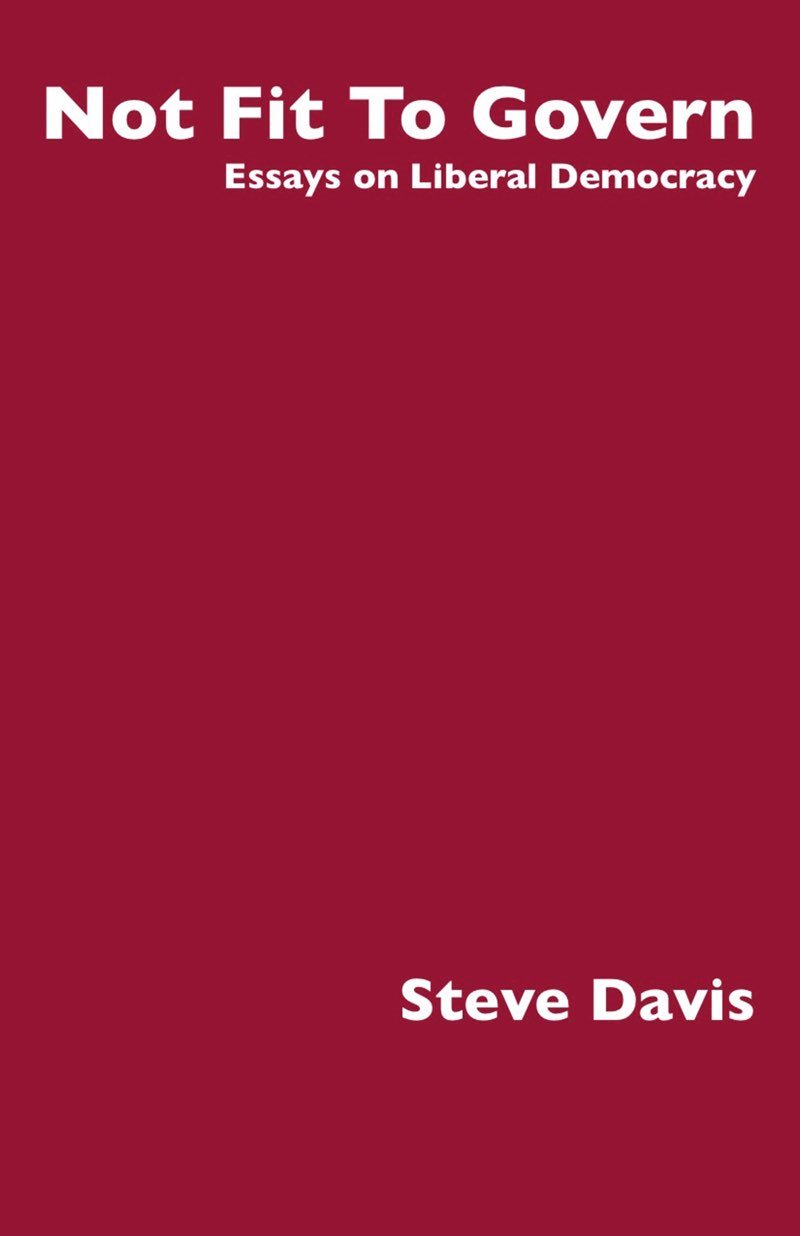Untitled
Not Fit To Govern: Essays on Liberal Democracy
ISBN 978 1 746041 442
Copyright Steve Davis 2009
All rights reserved. No part of this ebook may be reproduced, distributed or transmitted in any form or by any means without the prior written permission of the copyright holder. Requests for permission should be sent to the publisher at the address below .
First published 2009
Reprinted 2017
Ginninderra Press
PO Box 3461 Port Adelaide SA 5015
www.ginninderrapress.com.au
Introduction
T he essays in this volume originally appeared over a period of some years in Voice magazine, published by Ginninderra Press in Canberra. All were published well before the global financial turmoil of October 2008, to which all are linked. Other essays in Voice covered a variety of topics, but those appearing here developed a common theme, a belief that representative democracy has not just outlived its usefulness, but has become a danger to the survival of humanity itself .
The reasons for this are many, but most would belong in the three following categories. First, the capacity of the system to be manipulated by vested interests; second, its innate intolerance of and aggressiveness towards alternative social models; and third, the inability of the system to deal with national and global crises of its own creation .
The manipulation of the system by vested interests, as occurred in the lead-up to the financial turmoil of October 2008 has been a feature of modern democracy from day one, this feature having its origins deep in British history, well before the modern concept of democracy emerged .
The innate aggressiveness and intolerance of the system also has its origins in British history, due to the formation among an intellectual class in Britain of an ideology of individualism which has free market economics as its principal modern expression. So successful has the promotion of individualism been that modern democracy is now referred to as liberal democracy, liberalism being political code for economic individualism .
The inability of the system to deal with crises of its own creation is well illustrated for Australian readers by the Murray-Darling water catchment fiasco, which grew out of control due to lobbying by parliamentary representatives, on behalf of constituents, for water allocations beyond a sustainable level .
It might surprise some readers that parliamentary democracy has been the cause of these problems. I hope this collection will show that modern democracy, far from being a foundation of stability, is actually the source of much of the instability that currently plagues the globe .
A Brief Encounter with Liberty
O ne of the advantages of entering advanced middle age lies in acquiring the ability to detect social trends not apparent to younger observers. Technological advances are so rapid that anyone past primary school age can be aware of developments, but trends in the way society thinks require observation over a considerable period .
Those readers who can remember the 1950s and 60s, the height of the Cold War, will recall that during that era the Western propaganda machine rarely missed an opportunity to use almost any aspect of Soviet life as evidence not only of economic inefficiency, but of moral deficiency and brutality. It was as though our cultural managers took the view that we needed constant reminders of the superiority of Western culture, blissfully ignorant of the fact that the truly superior need no such assurance. One of the now rather amusing examples of this misuse of the news media was the shock and horror that was expressed in reports that Soviet women worked full-time and placed their children in child-care facilities during working hours. Some of these child-care facilities were even situated in the workplace so that mothers could have contact with their children during work breaks, a barbarous practice that would not be tolerated in any civilised society. As we now watch our politicians fall over themselves to appear to be doing all they can to provide child-care services for full-time working mums, we can only conclude that the Soviets were ahead of their time !
But this example of the West emulating Soviet practices once considered backward and unacceptable has a serious aspect. The steady move by governments in general to assume centralised control of all aspects of social life, coupled with the steady erosion of freedoms, will lead, if unchecked, to a totalitarian world, for the example is far from isolated .
We formerly condemned the Soviets for the practice of sending dissidents and political prisoners to isolated detention camps, yet our closest ally, with the support of the Howard government, attempted to hold prisoners, including an Australian, on an inaccessible island without trial and without recourse to the justice system. Our very own gulag .
We formerly condemned the Soviets for their repression of independent labour unions, yet the Howard government neutralised a significant vehicle for popular dissent by legislating to render unions here as ineffective as their Soviet counterparts .
We formerly condemned the Soviets for their indoctrination of the populace to a particular world-view, yet the Howard government had plans in place for the compulsory indoctrination of Australian schoolchildren to a factual Australian history based on the virtues of Christianity. (Here are a few of the volumes of facts that wont get a run in Howards history: the Gallipoli hero Simpson was a radical left-wing unionist; most liberals at the time of Federation believed in a fair distribution of wealth; unionised workplaces are generally healthier and wealthier than non-unionised; Robert Menzies was a fawning anglophile who put British interests ahead of the interests of Australians; the first returned servicemens organisations in Australia were labour unions; the Communist Party of Australia, portrayed at the time as being extremist irresponsible and immoral, was at the forefront of many social issues now considered mainstream and highly moral; and we hid the shame of our discriminatory immigration policy by using English language exams set at university level to unfairly exclude applicants from non-preferred countries .)
We formerly condemned the Soviets for their control of the news media, but today in the worlds most powerful democracy, events that do not conform to the view of the ruling elite are withheld from the people, a trend now increasingly noticeable in the Australian media. The US Congress is at this moment considering a bill that would prevent internet services at universities and colleges from providing access to sites other than those approved by government. If enacted, this would follow the Chinese governments lead in outright control of internet services .
We formerly condemned the Soviets for maintaining a one-party state, yet its now widely accepted, with some amusement, that the US is also a one-party state, the Republicans and Democrats being two wings of a party of business. Whats not so amusing is that at the time of George W. Bushs first presidential campaign, not only were presidential candidates from parties other than Republican and Democrat prevented from taking part in the televised debates, they were excluded from the room, a brazen exercise in thought control .

